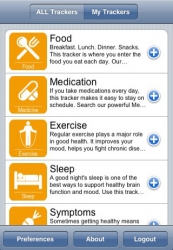Can data change habits?


Results of scientific tests on this thesis are mixed. It seems we will change what we order for our kids if we have the data, but we still get the double cheeseburger with fries for ourselves.
Sticks are necessary, along with carrots, in order to force change. It's not until the doctor says, "You have Type II diabetes" or "you have blockages in two arteries" or "you don't have any liver left" that many people get the message.
We call that freedom. And we charge our neighbors out the wazoo for it. We expect that someone -- an insurer, Medicaid, charity -- will pay for our insulin and monitors, our double bypass, our new liver.
That's what the present health care debate is really about. Some want to figure out how to pay for it and reduce the cost. Others say, die.
(They say this to others. I have yet to see a tea partier forego treatment because they can't pay cash. But it would be fun to imagine. An inverse of those Buddhist monks immolating themselves in Vietnam. Some fat guy sitting in the street eating Snickers until he falls over.)
Of course we don't have to wait for health reform or the completion of health IT reform to test this thesis. Through sites like TheCarrot.com, you can start collecting and tracking your own data, right now.
TheCarrot has lots of apps for that, and more are coming from research like San Francisco State's examinations of childhood obesity.
It takes motivation to change, however, and only then does data become useful.
In my own case, I visited a doctor in early 2000 after feeling lightheaded and hot at a marketing event, then learned I had hypertension and a cholesterol count like an Internet stock. Sell, I said. Those numbers have been cut in half.
These days I track my exercise with Fitlinxx. I'm nearing the 500,000 point mark and lots of party gifts from my local YMCA. I lift elephants and exercise away hot fudge sundaes like mad -- just not all at once.
So it's a two-step process. Costs go down if we can give you your motivation earlier, before you nearly die of a heart attack on a trade show floor as I did. Money is saved when data and motivation meet. Based on my dad's health schedule I'm 8 years overdue for my first heart attack.
What will it take for you to grab for the data you need to change your habits? The carrot or the stick?